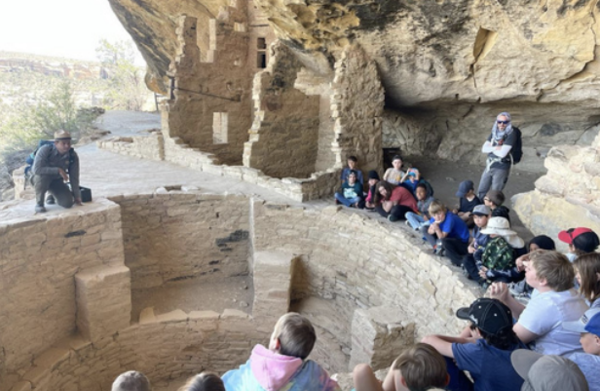Posted on
Diving deep into new concepts with effortful thinking
Category: Learning by Scientific Design
How we make sense of the world depends on our vantage point. Consider snorkeling versus scuba diving: both allow you to observe the ocean, but the latter gives you greater range to explore underwater depths.
Effortful-thinking questions are like scuba-diving gear for learners. They provide the means by which to “dive deep” on a new concept or idea. Such questions make students think hard about new ideas, making it more likely that they will remember what they’ve thought about. They include questions such as: Why might ___ be true? Why would this be true of X and not Y? How might this be different if…? How did you figure that out, and why did you take those steps?
This is the second teacher action that stems from the learning science principle of Deepening Meaning and Learning: Teachers’ questions and tasks should require students to engage in effortful thinking. When we initially observed teacher-candidates in the LbSD Network, we found only 17% regularly prompted effortful thinking in students. After their ed-prep programs redesigned coursework to prioritize learning science, more than 60% of future teachers we observed did this. (For more information, download our latest report here.)

Teacher-candidates who were exposed to learning science also had a better grasp on what it looks like to prompt for effortful thinking. One of the LbSD Assessment items evaluates whether teacher-candidates recognize how a teacher would respond during a math lesson to prompt effortful thinking in students. In the scenario, a fourth-grader named Alicia is explaining to the class how she solved an addition problem. Here are two representative responses. First, a candidate with a background in learning science:
The answers that I selected were effortful-thinking questions which will deepen their schema. Instead of asking just Alicia how she got that answer, these responses will prompt the teacher into asking the entire class to also think deeply about the answer in order to store the information in their long-term memory.
Compare that to a response from a candidate who did not have the opportunity to engage with learning science in their preparation:
I tried to think about ways to support all learners. For example, I picked responses that support students verbally, kinesthetically etc…so all learners can be supported. (There is almost no empirical support for learning styles.)
Related Stories:

Blog
Q&A with Dr. Natalie Bolton: How UMSL is aligning around learning science
For the last two years, faculty and staff at the University of Missouri—St. Louis have redesigned...
October 19, 2021

Blog
Working with different tools: How learning science helped Acqualyn Polk to rethink her ELA instruction
On a bright winter day in a classroom 30 miles north of the Louisiana coast, a class of...
April 20, 2021

Blog
‘Shifting the lift:’ how one district is using cognitive science to transform teaching and learning
We worked with Delta County School District to apply learning science to teaching practice.
September 27, 2023



